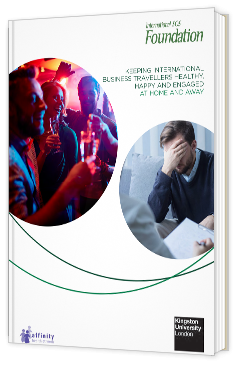

Most successful global corporations are defined by three fundamental values: ethos, Duty of Care, and corporate social responsibility/sustainability.

"Globalisation and international growth are now fundamental to the success of many large organisations.
This has driven an increasing need for international business travel. For instance, data from the Global Business
Travel Association (2016) demonstrated that the number of business trips in the United States rose from 488.1 million in 2015; to 502.8 million in 2016. In 2016 there were 9.2 million business trips to the UK alone; approximately 25% of all entries into the UK were classed as business visits (Office for National Statistics, 2017).
Although recent advances in technology (such as Skype and conference/video calling) have enabled better global communication; this has not appeared to impact on the volume of international business travel. Data presented by the Economic Intelligence Unit in 2013 demonstrated that 75% of IBTs said that they had travelled the same (in number of days), or to a greater extent than three years ago. The most common reasons for business travel, as cited by the Economic Intelligence Unit in 2013, were for meeting existing and potential customers, and attending conferences and networking events.
However, despite international business travel being seen as essential for global business, and advantageous in term of career progression for employees, there is evidence that it can be deleterious to health. The majority of research in this area to date has focused on the physical health risk to the traveller, including frequent flyer radiation, infectious disease and illness and cardio-vascular disease risk markers. International business travel has also been found to be associated with behavioural and psychological issues. These include jet lag, sleep disorders, stress and anxiety, increased alcohol consumption and dependence, exposure to poor nutrition, a lack of exercise (Rogers & Reilly, 2002) and obesity (Richards & Rundle, 2011; Rundle et al, 2017).
Socially, it has been found to be related to a lack of opportunity to detach from work, absence from home, distance from support networks and issues with work-family conflict.
Research has found frequent travellers to make three times as many claims for psychological treatment as non-travellers; and to have a lower psychological wellbeing, work-life balance and productivity than non-travelling colleagues"